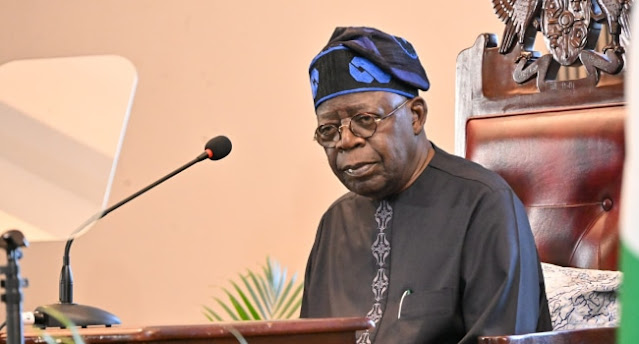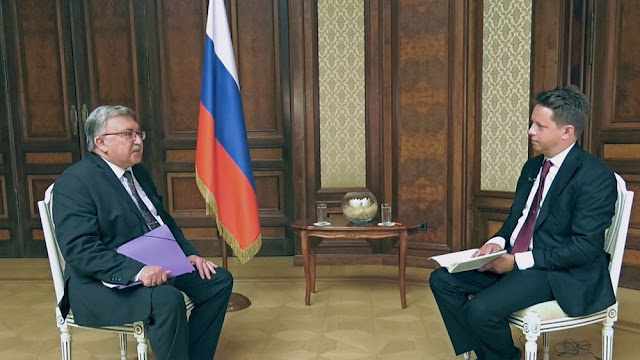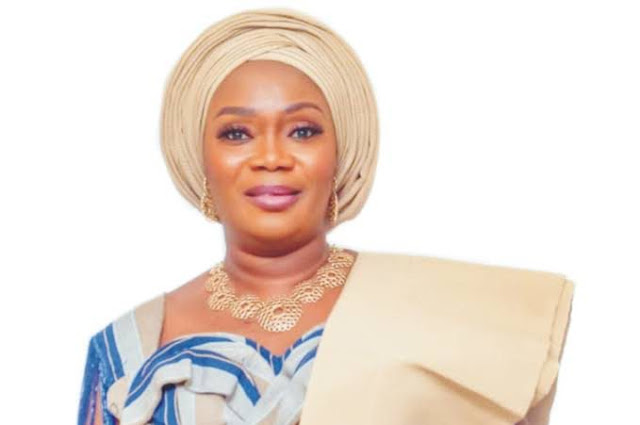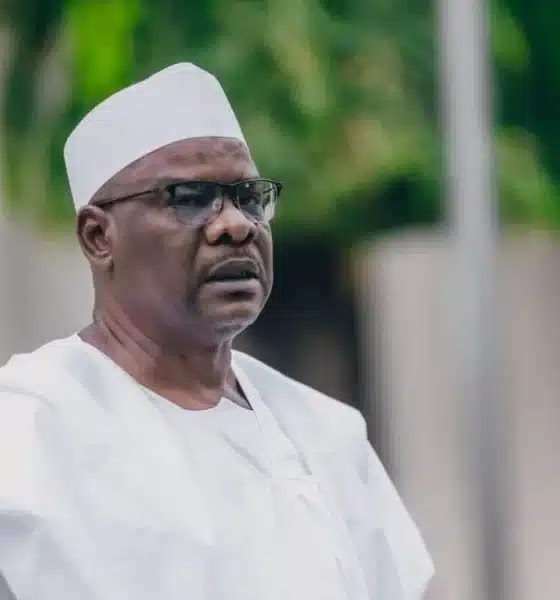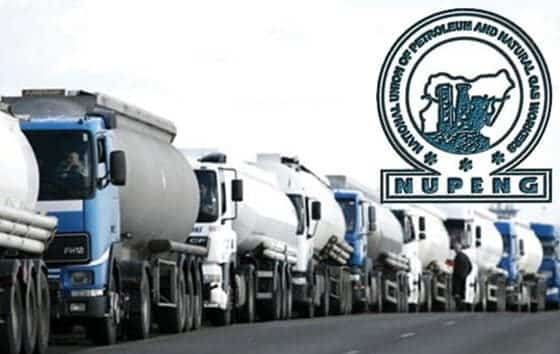In the ever-evolving landscape of Nigerian politics and economic policy, misinformation and public speculation often collide with official narratives, creating ripples of confusion and debate. On September 7, 2025, the Presidency of Nigeria stepped forward to address one such controversy head-on: the alleged introduction of a 5% fuel tax by President Bola Tinubu. This claim, which had been circulating widely on social media and in various news outlets, was firmly debunked by the Presidential Fiscal Policy & Tax Reforms Committee. Through a detailed statement amplified by Sunday Dare, the Special Adviser to the President on Media and Public Communication, the government emphasized that this surcharge is not a novel imposition but a pre-existing provision under the Federal Roads Maintenance Agency (Amendment) Act of 2007. This revelation not only aims to quell public anxiety but also highlights the complexities of tax harmonization in Nigeria’s fiscal reforms. In this extensive rewrite, we delve deeply into the details of the announcement, the historical context of fuel taxation in Nigeria, the broader implications for the economy, and the role of misinformation in shaping public discourse. By examining these elements, we aim to provide a thorough understanding of why this clarification matters in the current socio-economic climate.
The Core of the Controversy: What the Presidency Said
The heart of the matter lies in a viral insinuation that President Tinubu’s administration had stealthily embedded a 5% surcharge on fuel within the newly proposed tax laws, set to take effect in January 2026. This rumor gained traction amid ongoing discussions about Nigeria’s tax reforms, which seek to streamline the country’s convoluted fiscal system. However, the Presidency was quick to clarify that no such new tax was introduced by the current government. Instead, the provision for the 5% surcharge has been part of Nigerian law since 2007, originating from the Federal Roads Maintenance Agency (FERMA) Amendment Act. The restatement of this clause in the new Nigeria Tax Act is purely for the purposes of harmonization and transparency, ensuring that all fiscal elements are consolidated under a single, more accessible framework.
Sunday Dare’s post on X (formerly Twitter), shared on Saturday, September 6, 2025, served as the official mouthpiece for this clarification. In a structured format that included frequently asked questions (FAQs), the statement methodically dismantled the misconceptions. For instance, to the question, “Is it true that Tinubu’s administration introduced a 5% surcharge on fuel?” the answer was a resounding “No.” The surcharge, it explained, predates the Tinubu administration and was not included in the original tax reform bills submitted by the President to the National Assembly. This restatement is administrative in nature, aimed at avoiding duplication and enhancing clarity in tax administration.
Furthermore, the Presidency addressed concerns about the timing of implementation. Contrary to fears that the surcharge would automatically activate with the new tax laws in January 2026, it will only commence upon an explicit order from the Minister of Finance, published in the Official Gazette. This procedural safeguard, outlined under Chapter 7 of the Nigeria Tax Act, 2025, allows for flexibility, enabling the government to consider economic conditions, inflation rates, and public feedback before enforcement. Such a mechanism underscores a commitment to prudent fiscal management, preventing knee-jerk implementations that could exacerbate economic hardships.
Another critical exemption highlighted in the statement pertains to household usages. The surcharge explicitly excludes essential fuels like household kerosene, cooking gas (LPG), and Compressed Natural Gas (CNG). This carve-out is designed to protect low-income households from additional burdens, recognizing that fuel costs are intertwined with daily survival in Nigeria. By delineating these exclusions, the government signals an intent to balance revenue generation with social welfare, a delicate tightrope in a nation where fuel prices have long been a flashpoint for public discontent.
The full text of Dare’s post, as shared, reads: “The 5% Surcharge on Fuel: What is true and what is not? This note seeks to clarify matters arising regarding the 5% fuel surcharge in the new tax laws. The charge is not a new tax introduced by the current administration. The provision already exists under the Federal Roads Maintenance Agency (Amendment) Act, 2007. Its restatement in the new Tax Act is for harmonisation and transparency rather than immediate implementation.” The FAQs further elaborate, providing a Q&A format that makes the information digestible for the average reader. This approach not only counters misinformation but also educates the public on the nuances of tax policy, fostering greater trust in governmental communications.
Historical Context: The Roots of Fuel Taxation in Nigeria
To fully grasp the significance of this clarification, one must journey back to the origins of fuel-related levies in Nigeria. The Federal Roads Maintenance Agency (Amendment) Act of 2007 was enacted during the administration of President Olusegun Obasanjo, with the primary goal of funding road infrastructure maintenance. At the time, Nigeria’s road network was in dire need of rehabilitation, plagued by potholes, erosion, and neglect that hampered economic productivity and safety. The 5% surcharge on fuel was introduced as a dedicated revenue stream for FERMA, ensuring that a portion of fuel sales directly contributed to road upkeep. This was part of a broader strategy to ring-fence funds for specific infrastructure projects, reducing the risk of diversion to unrelated expenditures.
Over the years, this provision has remained largely dormant or underutilized, partly due to fluctuating fuel prices, subsidy regimes, and political sensitivities. Nigeria’s fuel market has been dominated by the Petroleum Motor Spirit (PMS), commonly known as petrol, which has been subsidized for decades to keep prices affordable for consumers. However, the removal of fuel subsidies in May 2023 under President Tinubu’s watch marked a seismic shift. The deregulation led to a sharp increase in pump prices—from around N185 per liter to over N600—triggering widespread protests, inflation, and economic strain. In this context, any whisper of additional taxes on fuel risks reigniting public fury, as seen in the #EndBadGovernance protests earlier in 2025.
The 2007 Act’s provision was not isolated; it fits into a tapestry of fiscal measures aimed at self-sustaining infrastructure funding. For example, similar levies exist in other sectors, such as the 15% Value Added Tax (VAT) on goods and services, or the excise duties on alcoholic beverages and tobacco. Yet, fuel taxes have always been politically charged because of their direct impact on transportation costs, which cascade into food prices, manufacturing, and overall living expenses. The Presidency’s insistence that the surcharge is a restatement rather than a novelty is crucial here, as it distances the Tinubu administration from blame for past fiscal decisions while promoting the narrative of continuity in reform efforts.
Moreover, the harmonization process under the new Tax Act addresses longstanding criticisms of Nigeria’s tax system. Prior to these reforms, the country operated under a patchwork of over 50 different taxes and levies, many overlapping and administered by multiple agencies. This fragmentation led to inefficiencies, multiple taxation, and evasion. The Presidential Fiscal Policy & Tax Reforms Committee, chaired by Taiwo Oyedele, was established in August 2023 to streamline this mess. Their reports, submitted to the National Assembly in 2024, proposed four consolidated bills: the Nigeria Tax Act, Nigeria Tax Administration Act, Nigeria Revenue Service (Establishment) Act, and Joint Revenue Board (Establishment) Act. The inclusion of the FERMA surcharge in the Nigeria Tax Act exemplifies this consolidation, aiming to create a single, transparent document that reduces administrative burdens on businesses and individuals alike.
Economic Implications: Balancing Revenue and Public Welfare
The debate surrounding the 5% fuel surcharge extends far beyond semantics; it touches on Nigeria’s precarious economic equilibrium. With oil revenues—historically the backbone of the federal budget—declining due to global energy transitions and production shortfalls from theft and vandalism in the Niger Delta, the government is under pressure to diversify revenue sources. Non-oil revenues, including taxes, have become imperative. In 2024, Nigeria’s tax-to-GDP ratio hovered around 10%, one of the lowest in Africa, compared to the continent’s average of 16-18%. Enhancing this ratio without alienating the populace is a Herculean task for the Tinubu administration.
If implemented, the 5% surcharge could generate substantial funds for FERMA, potentially billions of naira annually, depending on fuel consumption volumes. Estimates suggest that with daily PMS consumption at around 40-50 million liters, even a modest levy could bolster road maintenance budgets, which have been woefully underfunded. Improved roads would, in theory, reduce vehicle maintenance costs, enhance logistics efficiency, and stimulate economic growth. For instance, better highways could lower the cost of transporting agricultural produce from rural farms to urban markets, potentially curbing food inflation that has plagued Nigeria since 2023.
However, the risks are palpable. Fuel prices remain a barometer of public sentiment. The subsidy removal already pushed millions into multidimensional poverty, according to the National Bureau of Statistics. An additional surcharge, even if delayed, could compound this if not accompanied by relief measures. The exclusions for household kerosene, LPG, and CNG are a step in the right direction, aligning with the government’s push toward cleaner energy alternatives. Initiatives like the CNG conversion program, launched in 2024, aim to reduce reliance on petrol and diesel, potentially mitigating the surcharge’s impact over time. Yet, critics argue that without robust enforcement of exemptions, vulnerable groups could still suffer indirect effects through higher transportation costs.
From a macroeconomic perspective, this clarification reinforces investor confidence. Foreign direct investment in Nigeria has been sluggish, deterred by policy unpredictability. By transparently addressing rumors, the Presidency signals stability and adherence to due process. The requirement for a ministerial order before implementation introduces a layer of accountability, allowing for public consultations or economic impact assessments. This could prevent the kind of abrupt policy shifts that have historically eroded trust, such as the 2012 fuel subsidy removal attempt under President Goodluck Jonathan, which sparked nationwide strikes.
Furthermore, the surcharge ties into broader fiscal sustainability goals. Nigeria’s debt servicing costs consumed over 90% of federal revenues in early 2025, leaving little for capital projects. Ring-fenced taxes like this one could alleviate that pressure, funding essential infrastructure without resorting to borrowing. However, success hinges on equitable distribution: ensuring that FERMA funds are not siphoned off, as has happened in past scandals. Audits and digital tracking mechanisms proposed in the new Tax Administration Act could help safeguard against corruption.
The Role of Misinformation and Social Media in Nigerian Politics
In an era dominated by digital platforms, the spread of misinformation about policies like the fuel surcharge is not merely a nuisance—it’s a strategic challenge for governance. The rumor that Tinubu introduced a new 5% tax likely originated from misinterpretations of the tax reform bills during National Assembly debates in late 2024. Opposition lawmakers and civil society groups, wary of the reforms’ potential to increase the tax burden, amplified these concerns. Social media, particularly X, became a breeding ground for unverified claims, with hashtags like #TinubuTaxHike trending briefly in early September 2025.
Sunday Dare’s decision to use X for the clarification was astute, leveraging the same platform to counter falsehoods. This reflects a growing trend in Nigerian governance: proactive digital communication. Previous administrations, like Muhammadu Buhari’s, faced similar issues, such as rumors of secret tax impositions during the COVID-19 era. The Tinubu team, drawing lessons from these, has invested in rapid response units. Yet, the persistence of fake news underscores deeper issues: low media literacy, partisan biases, and the echo chambers of online communities.
Public reaction to the clarification has been mixed. Supporters of the administration praise the transparency, viewing it as evidence of Tinubu’s commitment to reforms without hidden agendas. Critics, however, remain skeptical, pointing to the overall tax hikes in the new laws—such as increased VAT on luxury goods—and questioning whether the surcharge will ever be waived. Labor unions like the Nigeria Labour Congress (NLC) have called for broader consultations, arguing that even restated provisions need reevaluation in light of current hardships.
This episode also highlights the intersection of politics and economics. As Nigeria approaches the 2027 elections, fuel policy remains a potent weapon. Opposition figures, including Atiku Abubakar and Peter Obi, have capitalized on subsidy removal backlash to critique Tinubu. By debunking the tax rumor, the Presidency not only defends its record but also preempts narratives that could fuel anti-government sentiment.
Broader Reforms: The Nigeria Tax Act and Fiscal Modernization
The fuel surcharge clarification is but one thread in the larger fabric of Nigeria’s tax reforms. The Nigeria Tax Act, 2025, represents a landmark effort to modernize a system inherited from colonial times and fragmented by military rule. Key features include simplifying tax brackets for individuals (from five to three), exempting low-income earners (below N1 million annually), and digitizing compliance to reduce harassment by tax officials. For businesses, the harmonization eliminates multiple levies, potentially saving SMEs billions in administrative costs.
The Presidential Committee’s work involved extensive consultations with stakeholders—from chambers of commerce to youth groups—ensuring inclusivity. Yet, challenges persist: implementation capacity, resistance from vested interests, and the need for public education. The Act’s Chapter 7, which governs the surcharge’s activation, exemplifies built-in flexibility, allowing adaptations to economic shocks like oil price volatility.
Internationally, these reforms align with global standards, such as those from the OECD, promoting base erosion and profit shifting (BEPS) prevention. For Nigeria, a signatory to the African Continental Free Trade Area (AfCFTA), a robust tax regime is vital for competitiveness. The exclusions for household fuels also support sustainable development goals, encouraging shifts to renewables amid climate change pressures.
Public Response and Future Outlook
As of September 7, 2025, the clarification has begun to temper the online frenzy, with Dare’s post garnering thousands of engagements. Civil society organizations like BudgIT have commended the transparency, while urging monitoring of implementation. Looking ahead, the Minister of Finance, Wale Edun, will play a pivotal role in deciding the surcharge’s fate, potentially delaying it amid ongoing economic recovery efforts.
In conclusion, the Presidency’s denial of a new 5% fuel tax introduction by Tinubu is more than a rebuttal—it’s a window into Nigeria’s fiscal evolution. By restating old provisions for clarity and exempting essentials, the government navigates the tightrope of revenue needs and public welfare. This saga reminds us of the power of informed discourse in democracy, urging citizens to verify before reacting. As Nigeria strides toward economic resilience, such clarifications will be key to building trust and fostering growth.


